 Photo: Dagoberto Valdes, Juan Juan Almeida, Yoani Sanchez
Photo: Dagoberto Valdes, Juan Juan Almeida, Yoani Sanchez
Yoani Sanchez: 1. You are an important public figure, especially because you are the son of one of the historic icons of the Cuban Revolution, the commander Juan Almeida Bosque. How have you dealt with these circumstances? Have you taken advantage of them? Have they become a burden?
Juan Juan Almeida: Figure? Importance? Me? I can tell you, one morning in October a General chose me, saying with reverence that I was the favorite son of my commander father, and a few years later, this same General kicked me out, almost literally, from the funeral of my father.
You see, experience is the referent, and what you could have called “circumstance”, has been, is and will be for me, my whole life. It’s in my blood, in my genes, in my surname. I would not be able – nor do I want – to give up what I am. My father is not and was not a burden.
I don’t think much before speaking and I always say what I think. I have already said it, I have thought about it, I reaffirm it: If I were to be born again, I would not want a similar father, I would want the same one.
To say that I took advantage of him, of his position, of his power, excuse me, that would also be relative. By the way, my father had nine children, there are eight of us siblings, why are you interviewing me? I don’t think it’s just because I’m the son of a Comandante.
2. I want to wrap up the topic of your father with this question and then talk about you. The folkloric image of Comandante Juan Almeida is that of a man of the people, fun, down to earth and transparent. No excesses or abuses of power have been attributed to him. Do you agree with that image? How was he as a family man?
Folkloric image? Wow, Yoani, you come up with such phrases!
Well, let’s say that in some ways I agree with that image if “down to earth” means that one is not a complicated person. More than “a man of the people” he was Cuban, very “Cuban” and very human. The day I went to the morgue I went up to him and kissed him. He was on a stretcher, serious, cold – that was not my father. And although it’s difficult for a son to give an unbiased opinion, today I would say that my father’s smile was something incredible, fascinating, the most beautiful one in the world.
I remember when I was a child I loved to run my fingers over the marks that his battles had left on his body and he would tell me proudly, with a smile, these happened here, those happened over there, this one happened in El Uvero. So I know each centimeter of my father’s body, an extremely tender man who paradoxically died without saying “I love you”. Maybe that’s why he took refuge in his songs. He composed one for me, I Want to be a Sailor, and every time I hear it my heart crumples up.
My father was what I would like to be someday: unique.
But that’s enough, let’s change the topic. I get sentimental and I’m terrified of suffering.
3. From reading your book, Memories of an Unknown Guerrilla, and from other testimonies of people close to you, one gets the impression of a certain disastrous quality in your conduct: an undesirable student in several schools, a terrible State security agent, failed businessman and irredeemable bohemian. If you were forced to say something good about yourself, what would you say?
Ah, but were you saying bad things about me? You’re damned if you do and damned if you don’t. If I had been a good agent for the organs of State Security, I bet you would be criticizing me right now. If I had been a “successful” businessman, would you be complimenting and envying me? And if I were not a bohemian, I wouldn’t know poems and this interview would be a boring antic, flattering and pedantic.
Look at that, it rhymes!
A while ago you called me “an important figure”; now, “disastrous” and “undesirable.” Hell, woman, you’re acting like the General. Look, you know who I am? I am Juan Juan and, by the way, I love saying my name. I am a Havanan by birth and in my heart. When I was very little and the carpets were rolled out, someone would always whisper: “the son of Comandante Almeida just arrived.” Later, when my daughter was a little girl and I would take her to school with her mother, her friends would say: “Indira’s father just arrived.” As you can see, my friend, the same way I am my father’s son, I am my daughter’s father. So that’s what I am: Indira’s father, Consuelo’s husband, Púbila García’s son, Juan Almeida’s son, my siblings’ brother, my friends’ friend. In conclusion, I am a guy who is many things, who loves to live his life and, as opposed to others, does not dream of that image of being an intelligent man. I am not a victim, I am not a hero, I have no pretensions of being a leader and even less a role model; no parties, no groups. I am only a human being with defects and fed up with so many people who have fantasies of fixing the world, which of itself is not even round. I think that a good chaos can be something fantastic!
4. In your youth and because you came from a family like yours, you were involved with that group of young men know popularly as “daddy’s boys”. Are you still friends with any of them? What happened to that pleiad?
Wouldn’t it really sound better to ask what happened to my group of friends? Well, all right, you like “pleiad”, I’ll use “pleiad.”
I am not going to mention their names, but all my friends, like all “friends”, some are here, others are elsewhere, others in the beyond.
Before, I used to talk to them a lot, and would even visit the ones here or elsewhere. But after suffering something as emotional as the persecutions were and are, being followed, arrested, interrogated, marginalized, excluded, etc., one has to learn to live with his present. I see no reason to affect or contaminate or want to convince anyone. My mother used to tell me: Juan Juan, I raised you to be a little man. And that’s it, I believed it.
I separated from my friends in order to protect them all, also from some relatives. I would have been a son of a bitch if I had acted any other way. But let me tell you something, the day I was kicked out of my father’s funeral, immediately after, my whole family left that place, they all got the hell out of the Plaza of the la Revolution. Listen well: All of them, Plaza of the Revolution. It’s not easy. From there I went home and I locked myself in to cry alone. And you know what helped me? The many phone calls, the great number of friends who, like you, know that my phone is always “congested.” Oh, and more than six thousand e-mails. I’m not an angel, I’ve said it, but that seemed to me enough to believe that I’m not so bad and that I had been able to sow a bit.
Did I tell you that a long time ago I removed from my dictionary the words “enemy,” “victory,” “defeat”; and because it rhymes with “combat” [in Spanish], I also removed “debate”.
Suffering terrifies me; so does power. I know them, I have seen them since childhood, they go hand in hand. Whoever prefers power should always understand that definition clearly, in its strictest sense, so as not to commit acts contrary to the duties imposed by the law, nor satisfy the personal interests of those who exercise it by abusing their authority and acting without respect for the law, decrees or constitutions. I don’t want that kind of power, I prefer to smile calmly.
By the way, and in conclusion, “daddy’s boys” is one of the many phrases that only create division and although it may seem funny to you, it’s quite discriminatory and exclusionary toward that “pleiad” that you call “daddy’s boys.” Not everything is absolute, the apple doesn’t look the same from the ground as from the sky.
5. Your current drama is described as one of a sick person who needs health care overseas where, in addition, your family lives, while the regime will not let you leave the country. What reasons have they given for denying you an exit visa? What do you think the real motives are? What do you think you would have to do or what would have to happen for you to finally get on a plane to leave Cuba? Will you return to live in this country if you manage to leave?
First, let’s put this in context: I have a life, not a drama. I was born with a genetic incurable illness, I don’t like talking about it, and I detest acting the victim. In the ’80s my conditions started to cause me pain and periods of being an invalid. I tried the best-known Cuban experts without finding any solution, including calling at the office of my father one afternoon because, and he had told me this, Minister Raul Castro had tried to find some Korean doctors because, among other things, he was also concerned about my case. I went to the Koreans, various sessions of acupuncture and other techniques but they didn’t resolve my problems. Go ask Raul, he must remember it. It was then when, through a decision of a commission of MININT and MINSAP, my medical records were sent to an international conference. I started to go to Brussels to see my doctor and things were going well even thought they were getting worse. The reasons, I don’t know. I received threats, arrests, persecutions, a ton of things; but an explanation, nothing.
Why don’t they let me go? I have no idea. I don’t know my interrogator nor anyone in Villa Marista. Nor can I accept that it’s on account of my father ordering it, because I don’t lack witnesses who destroy that hypothesis.
I have no doubt, that it’s a whim of someone who literally can piss on our Constitution, having forgotten the Hippocratic oath of the Minister of Health, to silence the highest leadership of the Ministry of the Interior and the President of the National Assembly.
Who has so much power? Fuente Ovejuna, señor. It’s because he can liquidate me, make me suffer pain, keep me from my daughter with no regard at all, from my wife, my family, he can put me in a cell in a secret case. But this hard-hearted pride will destroy his prestige because everyone looks and asks, why is the President of the Councils of State and of Ministers of the Republic of Cuba so taken with the idea of fucking over a guy like me? The answer is, I don’t know, it could be pride.
Am I going to return? I’m going to answer the same as I told a Colonel who interviewed me one day: my interest is in coming back — this I’ve repeated — but look, first I have to leave.
That which I’ve made clear is that if I leave illegally, I’ll return illegally.
6. It’s going around that you made at least one attempt at an illegal exit from Cuba. The incomprehensible is that, according to rumor, you guys were caught “red-handed” in a bus? Can you be more explicit?
Yes, but first I have to make clear that it wasn’t one, it was two attempts at illegal exit, or almost three. The first failed because the raft sank, fortunately next to the shore, I have at least two friends that can confirm it.
The second, is that one that many know: one afternoon they called me to say that, if I wanted to leave illegally, I was to show up dressed in white at 7 AM in a cafeteria that is located at the entrance to Lenin Park in the outskirts of the capital.
That I did, on May 6, 2009, out of pure desperation. I already said that I wrote letters, I already said I’d begged, I already said that I’d interviewed, I already said that they ignored me and there was no option other than an illegal exit. Besides, it’s already part of this old and sad story that sometimes seems spent: dreams, cries, frustrations, destroyed families — in the end, I said that on the bus we were 70-and-some-odd people.
Some said that God had abandoned us, and others, that He had simply saved us from a death on the high seas. The fact was that at 9 PM — by luck or disgrace, I don’t know — after hours on the road, the transit police detained the bus at the highway police control point in the city of Manzanillo. They took us to a police station, they took our identity cards and cell phones, they gave us a talking to in a theater, and then they divided us into groups. I remained with those who stayed overnight in that station. They put us in cells, and there, thrown here and there, we spent that first night together.
The next day, early, after breakfast, they took away our belongings, they took our fingerprints, they took statements and then locked us up in the same cells that were open before and to describe that now would be meaningless. At that time I learned that some of my fellow travelers had tried to illegally leave the country so many times and already knew too well the police procedures. After a while they returned all our belongings minus phones and identity cards, they offered us lunch and we rode the same bus, filming us as we rode, to take us to the delegation of MININT of Bayamo. But imagine it, a bus, with sixty-odd passengers tried to leave Cuba illegally; it was a noisy bomb running up the ghoulishly fascinated streets of Manzanillo, maybe that’s why many people in that town wanted to stand on the sidewalks to watch us pass. At first I thought they would throw stones or the like, but none of that, girl, people gave us examples of their solidarity. That was touching.
We got to Bayamo, were interrogated, taken to Havana, secret houses and even a thorough search of my house, a real atrocity. At last, after several days I left that nightmare with a hood over my head and I’m still required for many months to go and sign in at Villa Marista. I’ve said many times, I do not want to go sign, I want a trial, a trial to accept my own guilt, and the guilt of those who, by not answering my letters and leaving me in a legal limbo also becomes clear, they forced me and do force me to choose an illegal option. A situation and a suggestion that both, still, continue.
But what few know is that there was “almost” a third illegal departure, this last I told them personally in Villa Marista, I told them I would call the national and international press, meet them at the Malecon and get into a raft. Before, of course, I would also tell the Miami press that someone, a boat, a coast guard ship, a speed boat, whatever, something needed to come and wait for me in international waters. I have a visa. I’m will not stop asking or trying to get out, legal or illegal, that part doesn’t interest me, I need to go to the doctor, hug my family, because no one, absolutely no one, has the right to trample on my rights.
7. Do you consider yourself a dissident, government opponent, or something similar?
You don’t give me many options! I don’t consider myself a dissident or an opponent and much less “something similar.” I learned to get along, I’m everything and nothing. I have political opinions but I’m not political, I have a blog but I’m not a blogger, I have friends in the army and friends not in the army, friends who are foreigners and friends who are not foreigners, I’m a friend of Ventolera (that skinny lowlife they say is an expert at stealing clothes off the clotheslines) but I’m not a thief, I have a voice but I’m not a speaker, I have many gay friends but… Well, this is a topic we will talk about later.
Did you know that once, just to shut me up, they offered me work in a prominent place with gifts included? Did I ever tell you about the dissident friend who invited me to participate in his party? Did I tell you that in Villa Marista they constantly invite me to behave myself so they’ll give me the exit permit? Did I mention that a few days ago I received a strange message from the mouth of a General?
Oh, God, I consider myself a living being, an animal, a human, a Cuban, a Havanan who pursues only the welfare of my family, my friends, friends of my friends and my country.
I like a poem by my friend Roger Silverio that says something like:
“I’m tired, my Lord, I’m tired, it is a very large load you have given me
And being tired, I have almost forgotten, you promised me a world restored.”
8. Is it true that you have a private room in Villa Marista, the headquarters of State Security? Have you ever been subjected to cruel treatment, physical or psychological tortures? Do they still, at this point, propose that you work with them?
It’s true and interesting that the times they have taken me to Villa Marista and I had the privilege of sleeping on a bed in the same cell … sorry, I meant “the Presidential Suite.” But look, they have changed my number, the agent assigned to me and even my interrogator. Of course, the latter apologized and explained that he had been working outside of Havana. I do not mention his name because he begged me and I respect his privacy.
The treatment hasn’t been bad, no one has hit me, no one has pulled out my fingernails and they’ve even shown me letters. But beware, a cautionary measure that lasts longer than the sentence for a crime I never committed would be a violation, to be imprisoned for no reason could be an abuse, you feel and see yourself persecuted by people and cars, even to have photos of them is harassment, to not allow me to leave to see a doctor could be a kind of physical torture, and the simple and insignificant fact that they have taken me far from my family on a whim and the command of a lord, could be something like a psychological pressure. Especially when this is often accompanied by a polite, “Be good.”
What if they propose I collaborate? No, it is not that they have asked me, but believe me, I’d be enchanted although according to the manuals I remember from the KGB, there are certain characteristics people should have to “be recruited.” I don’t know if I can talk about these issues without violating any law, but now let me say that I do not fit the profile.
9. Lately you have been given to taking to the streets with signs. What does each of them say? What have you been trying to accomplish with the public protest?
 Juan Juan Almeida walking with one of his signs.
Juan Juan Almeida walking with one of his signs.
No, lately no, I’ve always drawn posters. The first time I was just little boy. I was a José Martí Pioneer and I wanted to be like the apostle. On that first occasion, my sign said “I want to be like Marti.” For the record, I had nothing against the Che Guevara nor the Pioneer slogan [“I want to be like Che”]; but they punished me.
Later, I was in high school, I hung a sheet from the balcony that said in black letters, “Teachers, we students are not coming to the field today, we’re tired, please, replace us.” The teachers didn’t understand that I was asking a favor. That week I didn’t get a weekend pass.
For my wife, my daughter, I have filled the house with posters. In the bath, on the mirrors. Anyway.
In 2005 I was at the Plaza municipality immigration office with a poster that said, “I need permission for me and my wife to leave.” They threw me out. The same year I was at the Plaza of the Revolution with a poster that said the same thing. They detained me and confiscated the poster.
Finally, in 2009, they told me in Villa Marista that my case was closed and I could ask for permission to leave, and the next day they told me they reversed that decision, I went to the Plaza with a placard but this time it was blank. That was the problem, the agents didn’t understand and no matter how much I explained they didn’t believe I was thinking of doing it there. Geez, it’s that smart people are always very complicated.
The last and most recent was in December. An official from Villa Marista assured me that on a certain day they would have a definitive solution to my problem. That day came. Nothing, I felt played with, I grabbed my poster and went in the direction of Raul’s house, they stopped me on 5th avenue; that time it said, “Mr. President, respect the law, respect my rights.”
I never intended to disrespect anyone, I’m not a brave man, my posters aren’t offensive, they don’t create public scandals, I just want to get the attention of the people who run things. Nothing more. I already said in Villa Marista that they love to invent heroes, figures, myths, histories, legends, personages and enemies. They are making me into something I’m not.
10. How many weeks ago did you open your blog on the internet titled, “The Voice of El Morro”? What is the content of your blog? What made you participate in the alternative Cuban blogosphere?
I’ve repeated infinite times that for me, they won’t let me leave because of the whim of my “Mr. President,” because I write letters, I try to leave illegally, etc. etc. etc. I got to this point and I know that I’m not an isolated case, I opened my blog to open a window for everyone who wants to scream, to testify and to expose to the world the face of those of us who today are ghosts. It’s not my intention to pick at anyone’s wounds, I just want the testimony of those people who, for reasons or the whim of a “Don Juan of the pen,” can’t travel from this island or leave it. I want to claim all those who sadly share this absurd prohibition, because rather than separate us it unites us.
It’s simple, there is no double standard or hidden meaning. What is surprising is that some prefer the fear and choose to stay silent hoping the government will pardon them for something they never committed. I understand them, it’s their choice, they have written me hiding behind pseudonyms, but I want facts, not stories. To see you, when you get excited, about putting your face on my blog.
Look, I don’t like this name, “alternative Cuban blogosphere,” it sounds ugly to me and I want to clarify that we are not part of it and we don’t agree with it.
Now I want to tell you a story. One morning someone summoned me to a place, and after much talk a person told me that I resembled a certain Yoani Sanchez. I swear, I had never heard that name and started to wonder about her, with the sole intention of knowing who someone might compare me to. Then I read what Fidel Castro had written in the forward to a book [Fidel, Bolivia and Something More] and my curiosity was piqued. So it happened that, and it was after I’d forgotten that little name, one afternoon I was writing in my house and I received a text message saying, “I am Yoani, if you want to meet me I’m at the home of…” (A friend I don’t want to mention.)
I answered the text message, “Of course, I’ll meet you right now and I am going to kiss your feet,” I said, “If you have washed them.” I dropped everything and went there with the dream of meeting a fawning mulata, tall and delicious.
What a let-down, my friend! At my good friend’s house, on the only sofa, was a white skinny thing with nice legs but too demure for my tastes. And this is Yoani Sanchez? I wondered. So I met an enchanting woman and her husband with his captivating sense of humor. You invited me to your house and I went, I got in the elevator and two young people got in with me, I watched them covertly. One of them had a certain arrogant and dreamy look, and because I am indiscreet I paid particular attention to some metropolitan buttocks. And the boy, well the truth is after looking at those buttocks I didn’t notice anything about him. And in this way I met Claudia Cadelo. And because a beautiful woman is not the youngest, nor the skinniest, nor the one with the smoothest skin or the most stunning hair, but the one who with just a smile and a word can light up your life, I ended up being her friend and the friend of that spectacular guy who is Ciro. Later I met Orlando Luis and I also loved him, and Ivan, Miriam, Ricardo and all those who today are part of my family. What’s more, I can tell you this, and I have told you, so started this crazy fable which, more than a fairy tale, is a story and more than a story is now history.
11. If right now the president of the Republic, General Raul Castro, called you on the phone and asked your advice for solving the problems of Cuba, what would you tell him?
This is not going to happen, but if it did, I couldn’t talk to him right now, I’m talking to Yoani.
Interview by Yoani Sánchez.
*Translator’s Note: This interview is taken from Convivencia’s main website where it appeared, rather than from its blog (which is a part of the website). It is much longer than the typical blog post, but of such humor and interest we thought English-speaking readers would enjoy it. The interview was originally posted on March 30, 2010.
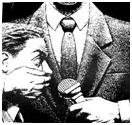 The Penal Code (CP) characterizes and punishes behavior that goes against the security of the state, the economy, public policy, etc. But in a different area of the law there is another criminal provision, which carries the same weight and promotes the same goals: Law No. 88, “Protection of National Independence and the Economy,” popularly known as “the Gag Law.”
The Penal Code (CP) characterizes and punishes behavior that goes against the security of the state, the economy, public policy, etc. But in a different area of the law there is another criminal provision, which carries the same weight and promotes the same goals: Law No. 88, “Protection of National Independence and the Economy,” popularly known as “the Gag Law.”
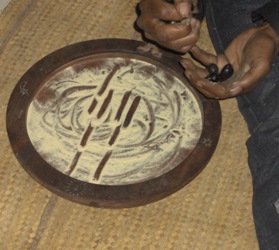 Movement is a universal property: nature changes and society changes. The difference is that changes in nature respond to objective laws which operate with or without human involvement, while history is made by men, allowing them to hasten or delay change, but not to stop it. The need for social change manifests itself as a permanent dissatisfaction with what has been achieved, which makes society a perfectible entity.
Movement is a universal property: nature changes and society changes. The difference is that changes in nature respond to objective laws which operate with or without human involvement, while history is made by men, allowing them to hasten or delay change, but not to stop it. The need for social change manifests itself as a permanent dissatisfaction with what has been achieved, which makes society a perfectible entity.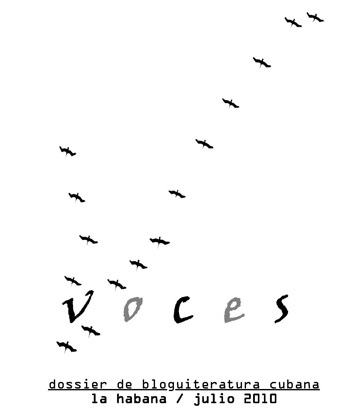
 He received me on Monday in a quiet apartment in Mantilla from where he has written almost all his work. On a polished table he put cold water and strong coffee for both of us. He lit a cigarette whose smoke, luckily, chose as its victim the bust of Cervantes resting on a nearby sideboard. And began to answer my questions.
He received me on Monday in a quiet apartment in Mantilla from where he has written almost all his work. On a polished table he put cold water and strong coffee for both of us. He lit a cigarette whose smoke, luckily, chose as its victim the bust of Cervantes resting on a nearby sideboard. And began to answer my questions.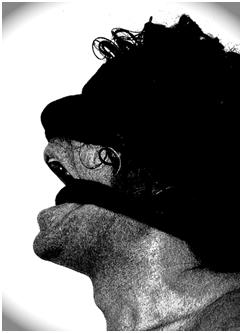 Freedom of expression is internationally recognized in the Declaration of Human Rights (Article 19). These prerogatives include being safe from oppression due to expressing an opinion, conducting research and receiving and spreading information, regardless of borders, by any means.
Freedom of expression is internationally recognized in the Declaration of Human Rights (Article 19). These prerogatives include being safe from oppression due to expressing an opinion, conducting research and receiving and spreading information, regardless of borders, by any means.

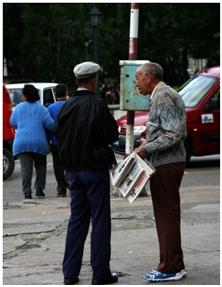 In principle, States enjoy sovereign power, which they are able to express through the actions of their government bodies and the enactment of laws. The latter are the suitable instrument for exercising their right to prescribe crimes and penalties (the right to punish). But it is disturbing how the Cuban government uses the coercive force of criminal law for political purposes.
In principle, States enjoy sovereign power, which they are able to express through the actions of their government bodies and the enactment of laws. The latter are the suitable instrument for exercising their right to prescribe crimes and penalties (the right to punish). But it is disturbing how the Cuban government uses the coercive force of criminal law for political purposes.

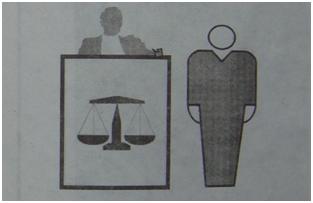 In Cuba, the power to administer justice belongs to the People’s Courts. The Supreme People’s Court (TSP), under Article 121 of the Constitution of the Republic, is the highest judicial authority and its decisions are final. But it is not recognized as the highest organ of “the People’s Power.”
In Cuba, the power to administer justice belongs to the People’s Courts. The Supreme People’s Court (TSP), under Article 121 of the Constitution of the Republic, is the highest judicial authority and its decisions are final. But it is not recognized as the highest organ of “the People’s Power.” Photo: Dagoberto Valdes, Juan Juan Almeida, Yoani Sanchez
Photo: Dagoberto Valdes, Juan Juan Almeida, Yoani Sanchez Juan Juan Almeida walking with one of his signs.
Juan Juan Almeida walking with one of his signs.